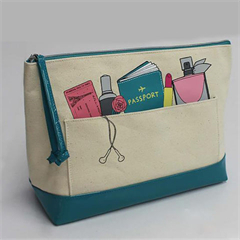Plastic cosmetic bottles have a significant environmental impact due to their production, usage, and disposal. Some of the key environmental concerns associated with plastic cosmetic bottles include:
- Resource Depletion: The production of plastic bottles requirs the extraction and consumption of non-renewable resources, such as crude oil and natural gas. These resources are finite and contribute to environmental degradation during extraction and processing.
- Greenhouse Gas Emissions: The production of plastic bottles releases greenhouse gases, such as carbon dioxide (CO2) and methane, contributing to climate change and global warming.
- Pollution and Littering: Improper disposal of plastic bottles, such as littering or inadequate recycling, leads to plastic pollution. Plastic waste often ends up in oceans, rivers, and landfills, causing harm to wildlife and marine ecosystems.
- Microplastics: Over time, plastic bottles break down into smaller fragments called microplastics, which can be ingested by marine life and enter the food chain, posing risks to both animals and humans.
- Toxic Chemicals: Some plastic bottles may contain harmful chemicals, such as Bisphenol A (BPA) or phthalates, which can leach into the contents of the bottle and pose health risks.
- Energy Consumption: The energy required to produce, transport, and dispose of plastic bottles contributes to overall energy consumption and its associated environmental impacts.
- Land Use: The manufacturing and disposal of plastic bottles require land for extraction of raw materials, production facilities, and landfill sites, leading to habitat destruction and loss of biodiversity.
- Recycling Challenges: While recycling plastic bottles can mitigate their environmental impact, the recycling process itself consumes energy and resources. Moreover, not all plastic bottles are recycled due to inadequate infrastructure, improper disposal, and contamination.
To address the environmental impact of plastic cosmetic bottles, several measures can be taken:
- Reduce Plastic Use: Brands can explore alternative packaging materials, such as glass, aluminum, or biodegradable plastics, to reduce reliance on traditional petroleum-based plastics.
- Promote Recycling: Encourage consumers to recycle plastic cosmetic bottles properly by providing clear instructions and implementing accessible recycling facilities.
- Use Recycled Plastic: Increase the use of recycled plastics in cosmetic bottle production, reducing the need for virgin plastic and supporting the circular economy.
- Eco-Friendly Design: Brands can design packaging with eco-friendly features, such as lightweighting, refillable containers, or using fewer materials.
- Educate Consumers: Raise awareness among consumers about the environmental impact of plastic bottles and promote more sustainable choices.
By adopting sustainable practices and reducing the environmental impact of plastic cosmetic bottles, individuals, businesses, and policymakers can collectively work towards a more environmentally responsible future. 






